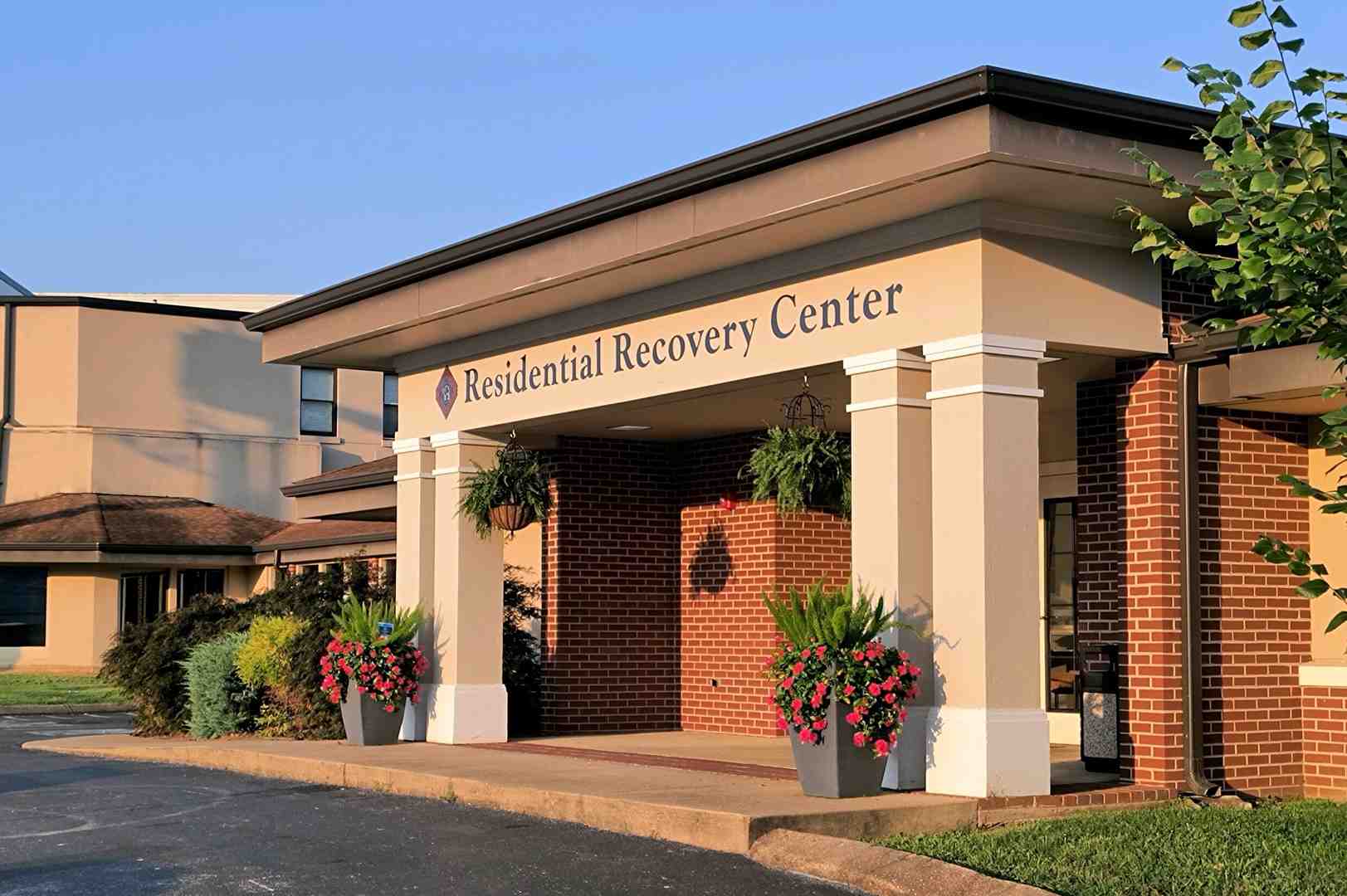
Faith-based rehab centers offer a unique approach to addiction recovery, combining traditional treatment methods with spiritual guidance. These programs cater to individuals who want to incorporate their faith into their healing process, providing a supportive environment where spirituality plays a central role.
This approach not only addresses the physical and psychological aspects of addiction but also nurtures the soul, offering a holistic path to recovery. By blending spiritual teachings with therapeutic methods, faith based rehab centers provide a unique sanctuary for those seeking to overcome addiction.
What Are Faith-Based Rehab Centers?
Faith-based rehab centers are treatment facilities that integrate spiritual or religious practices into their addiction recovery programs. These centers are typically affiliated with a specific faith or denomination, such as Christianity, Judaism, Islam, or other religious traditions. The core philosophy of these programs is that spirituality can be a powerful tool in overcoming addiction, fostering resilience, and building a meaningful, substance-free life. By offering a space where faith and healing coexist, these centers give individuals the tools to reconnect with their spiritual roots while addressing the challenges of addiction.
Core Principles of Faith-Based Rehab
Faith-based rehab programs operate on several fundamental principles that set them apart from secular rehab programs:
- Healing Through Faith The belief that faith can provide strength and clarity is central to these programs. Addiction is treated not only as a physical illness but also as a spiritual disconnection. This philosophy enables individuals to view their struggles through a spiritual lens, making their recovery journey deeply personal and transformative.
- Building a Spiritual Foundation Participants are encouraged to build or strengthen their spiritual foundations as a means of overcoming addiction and finding renewed purpose. By fostering spiritual growth, individuals often gain a sense of direction and hope that drives them to maintain sobriety.
- Focus on Forgiveness and Redemption Faith-based rehab centers emphasize forgiveness, both of oneself and others, as a key to emotional and spiritual healing. This focus helps individuals release guilt and shame, paving the way for lasting recovery.
Key Features of Faith-Based Rehab Centers
Faith-based rehab centers offer a combination of traditional and spiritual treatment approaches. Here are some key elements typically found in these programs:
- Spiritual Counseling One-on-one or group counseling sessions explore the role of faith in recovery, helping individuals reconnect with their spiritual beliefs. These sessions often include clergy or spiritual leaders who provide guidance and mentorship tailored to the individual’s faith journey.
- Faith-Based Activities Practices such as prayer, meditation, worship services, and scripture study are integral to the recovery process. These activities not only nurture the spirit but also create a routine that fosters discipline and focus.
- Traditional Therapies Evidence-based therapies like cognitive-behavioral therapy (CBT), group therapy, and medical detoxification are often incorporated. This blend ensures that individuals receive a well-rounded treatment plan addressing all aspects of addiction.
- Supportive Community Faith-based centers foster a sense of community among individuals who share similar beliefs, creating a strong support network. This community often becomes a source of inspiration and encouragement, making the recovery journey less isolating.
- Holistic Healing An emphasis on the mind, body, and spirit ensures comprehensive recovery. By addressing all dimensions of an individual’s well-being, faith-based rehab centers create a balanced approach to healing.
- 12-Step Programs Many faith-based centers incorporate 12-step programs, such as Alcoholics Anonymous (AA), which emphasize a higher power as part of the recovery journey. These programs provide a structured path to sobriety, rooted in spiritual principles.
Find Hope and Healing: Call Us Now!
Take the first step towards a brighter future! If you or a loved one is seeking support for substance abuse, we are here to help. Call us today and let our dedicated team guide you to the right treatment options. Your path to recovery starts now!
- Connect with an expert addiction specialist 24/7/365
- Learn about treatment costs
- Arrange fast access to a treatment program
Request a Call
OR
Make a Call
Why Choose a Faith-Based Rehab Center?
Choosing a faith-based rehab center offers several unique advantages:
- Spiritual Growth and Renewal Faith-based rehab centers offer a nurturing environment for individuals to reconnect with their spirituality, which can provide strength and motivation during recovery. Spiritual growth often leads to a deeper understanding of oneself and a renewed sense of purpose.
- A Sense of Belonging For individuals with a strong faith, these programs foster a sense of community, helping them feel understood and supported. The shared beliefs and values among participants create a bond that enhances the recovery experience.
- Integration of Faith and Healing By blending spiritual and traditional methods, these programs create a holistic approach to recovery that addresses all aspects of the individual. This integration ensures that participants receive comprehensive care tailored to their unique needs.
Benefits of Faith-Based Rehab Centers

Faith-based rehab centers provide numerous benefits that make them an effective option for addiction recovery:
- Spiritual Growth These programs provide an opportunity to deepen one’s connection to their faith, offering strength and guidance throughout recovery. Spiritual growth becomes a cornerstone of the healing process, helping individuals build a foundation for a fulfilling, sober life.
- Sense of Purpose Participants are encouraged to rediscover their purpose and align their actions with their spiritual values. This sense of purpose often becomes a driving force in maintaining sobriety and achieving long-term recovery.
- Supportive Environment Being surrounded by like-minded individuals fosters a sense of belonging and accountability. This supportive environment helps individuals feel less alone in their struggles, making the recovery journey more manageable.
- Holistic Approach By addressing physical, emotional, and spiritual needs, faith-based rehab centers ensure comprehensive healing. This holistic approach allows individuals to achieve balance and well-being in all areas of their lives.
- Guidance from Faith Leaders Many programs involve clergy or spiritual leaders who provide mentorship and support tailored to the individual’s faith journey. These leaders often play a pivotal role in helping individuals navigate the challenges of recovery.
Who Can Benefit from Faith-Based Rehab?
Faith-based rehab programs are ideal for individuals who:
- Have a strong religious or spiritual foundation and want to integrate it into their recovery.
- Are open to exploring spirituality as part of their healing process.
- Seek a supportive community of individuals who share similar beliefs.
- Feel disconnected from their faith and want to rebuild their spiritual connection.
Types of Services Offered
Faith-based rehab centers provide a variety of services to meet the unique needs of individuals:
- Detoxification Medically supervised detox to manage withdrawal symptoms safely. Detox is often the first step in the recovery process, ensuring individuals are physically prepared for treatment.
- Inpatient Treatment Structured programs that integrate spiritual practices with therapeutic activities. These programs provide a safe and supportive environment for individuals to focus entirely on their recovery.
- (Outpatient Programs Flexible options for individuals who need treatment while maintaining daily responsibilities. Outpatient programs often include spiritual counseling and group therapy sessions.
- Family Therapy Counseling sessions that include spiritual principles to rebuild and strengthen family relationships. Family therapy helps address the impact of addiction on loved ones, fostering healing and understanding.
- Aftercare Programs Ongoing support through faith-based groups and resources to ensure long-term recovery. Aftercare programs provide a safety net for individuals as they transition back into daily life.
Challenges of Faith-Based Rehab Centers
While faith-based rehab centers offer many benefits, they may not be suitable for everyone:
- Religious Exclusivity Some programs may focus on a specific faith, which might not align with everyone’s beliefs. It’s important for individuals to choose a program that resonates with their spiritual values.
- Limited Access Depending on location, faith-based rehab centers may not be readily available. This limitation can make it challenging for individuals in certain areas to access these programs.
- Preference for Secular Programs Individuals who prefer a non-religious approach may find traditional rehab programs more suitable. It’s essential to consider personal preferences when choosing a rehab center.
How to Choose the Right Faith-Based Rehab Center
When selecting a faith-based rehab center, consider the following:
- Alignment with Beliefs: Ensure the center aligns with your faith or spiritual practices.
- Accreditation and Licensing: Verify that the facility employs qualified professionals and is licensed.
- Comprehensive Programs: Look for a blend of spiritual guidance and evidence-based treatments.
- Aftercare Support: Check if the center offers ongoing support after completing the program.
- Testimonials and Reviews: Research feedback from past participants to assess the program’s effectiveness.
The Role of Spirituality in Recovery
Spirituality can provide hope, purpose, and a sense of connection. For many, faith becomes a guiding force that helps them overcome challenges and build a fulfilling life. By integrating spirituality into recovery, individuals often find the strength and motivation needed to maintain sobriety.
Success Stories from Faith-Based Rehab Centers
Stories of transformation often highlight the power of spiritual healing, renewed purpose, and the strength found in community support. These testimonies illustrate the effectiveness of faith-based rehab programs in helping individuals achieve lasting recovery. Many individuals credit their success to the spiritual guidance and support they received in these programs.
How Addiction Helpline America Can Help
At Addiction Helpline America, we connect individuals to faith-based rehab centers that align with their needs. Call our helpline at (844) 561-0606 for guidance on finding the right program. Whether you’re seeking a faith-centered approach or a secular program, we’re here to help.
Find Hope and Healing: Call Us Now!
Take the first step towards a brighter future! If you or a loved one is seeking support for substance abuse, we are here to help. Call us today and let our dedicated team guide you to the right treatment options. Your path to recovery starts now!
- Connect with an expert addiction specialist 24/7/365
- Learn about treatment costs
- Arrange fast access to a treatment program
Request a Call
OR
Make a Call
Conclusion
Faith-based rehab centers offer a unique and compassionate approach to addiction recovery, emphasizing spiritual growth and community support. By integrating faith with traditional treatment methods, these programs provide a holistic path to healing. If you or a loved one is struggling with addiction, consider exploring faith-based rehab as a meaningful step toward recovery and renewal.
Frequently Asked Questions
What is a faith-based rehab center?
How does spirituality play a role in addiction recovery?
Are faith-based rehab centers only for religious individuals?
What types of treatment do faith-based rehab centers offer?
Can faith-based rehab centers help with co-occurring disorders?
Our helpline is 100%
free & confidential
If you or someone you care about is struggling with drug or alcohol addiction, we can help you explore your recovery options. Don’t face this challenge alone—seek support from us.
Programs
Resources
Will my insurance
cover addiction
treatment?
We're ready to help
Find the best
drug or alcohol treatment
center
Are you or a loved one struggling with addiction? Call today to speak to a treatment expert.











